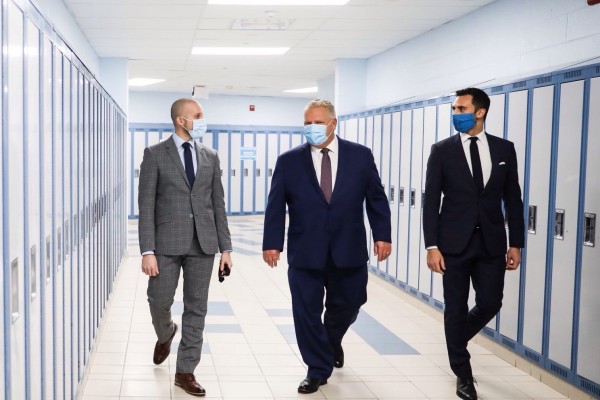-

Wages did not cause Canada’s inflation crisis
Wages do not cause inflation but they do eat into profits. And profit, the unpaid labour of the working class, is the lifeblood upon which all the parasitic layers of society depend—from bosses to central bankers. The wage-price spiral is not a serious model; it’s a tale told to frighten workers out of threatening profit.
-

NATO: Against the poor of the world
NATO and its defenders claim it is strictly an alliance of “collective Western defence.” But a review of its history finds that it has, for more than 50 years, plotted and backed military actions against liberation movements in Africa, Asia and Latin America. Indeed, NATO’s existence is a recipe for more frequent military conflict and confrontation.
-

We’re working longer hours for their profits
A new study by TD Economics confirms the obvious: working class living standards are declining in Canada. For years, GDP and productivity growth have stagnated and, as the report observes, Canada’s bosses have sought to make up for it, in part, by extending our working hours. As Mitchell Thompson explains, the boom times are over: this is the era of capitalism’s decline.
-
_600_400_90_s_c1.jpg)
Landlords are profiting from Canada’s rental shortage
In their corporate reports and amongst themselves, Canada’s largest landlords are remarkably honest about where their revenue comes from—from gouging and displacing tenants. And while no clear registry exists outlining who Canada’s landlords are, there is little doubt that Canada’s housing supply is concentrated in a few very wealthy hands.
-

Blame landlords for Canada’s skyrocketing rents
With five million renters competing for two million purpose-built rental units, Canada’s rental housing market is a sellers-market. But the problem goes well beyond supply and demand. As rent and housing prices have inflated, this dynamic has given a base to massive rental housing monopolies across Canada’s cities.
-

Ontario hospitals looked to make themselves ‘lean’ throughout the pandemic
Even as hospitals across Ontario were overwhelmed by patients during the pandemic, the system’s managers were reportedly busy looking for “cost-savings.” While the crisis has been used by Ontario’s right-wing government to further privatize the system, there is further evidence that the health system’s public sector managers have spent years wrecking it from inside.
-

Doug Ford ploughs ahead with attacks on education
According to Ontario’s Financial Accountability Office, the government’s current spending projections will likely lead to a $12.3 billion shortfall over the next decade. If those projections are followed it will mean “significant cuts” to staffing and education programming. Whatever Stephen Lecce may put forward “philosophically,” the situation is clear and it is grim.
-

Correcting the record on Bill Graham and the Iraq War
With the recent death of former Liberal Defence and Foreign Affairs Minister Bill Graham, has come a gush of praise for how he “resisted American arguments” and “stayed out” of the invasion of Iraq. This is a significant revision of history. The reality is that Canada was very much “involved” in the invasion of Iraq and the “War on Terror”—and Graham staunchly defended this role.
-

School wars in Ontario: McKinsey consultants, eLearning, and wage cuts
Many of Doug Ford’s policies today are recycled versions of the attacks of the past and designed to achieve the same ends—albeit magnified by his usual crassness. The education cuts demanded today are, to that end, a part of the program of broader attacks on workers elsewhere. They are, in some ways, about preparing youth for the “jobs of the future.”
-

For Ontario’s political establishment, cutting ‘welfare dependence’ means making the poor desperate
Recurring proposals by Doug Ford’s Progressive Conservative government to stop social assistance “dependence” reflect a long history of Liberal and Tory governments alike, working to make income support programs less dependable. In all cases, the aim of these cuts is to make the poor destitute and to make workers afraid. Mitchell Thompson explores this long and ignominious history.



